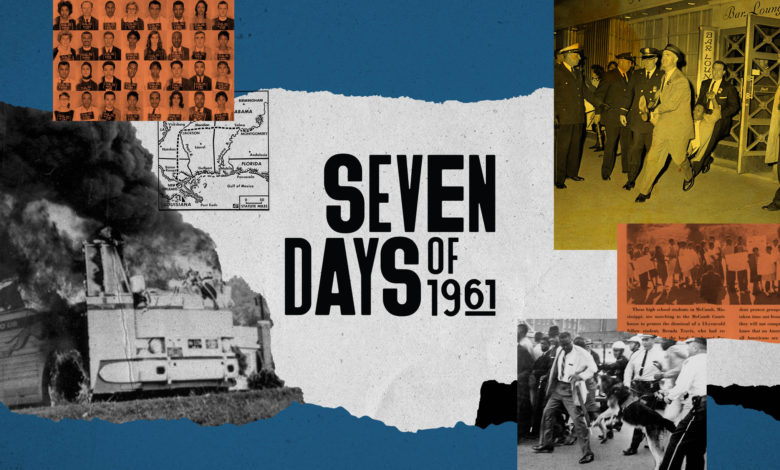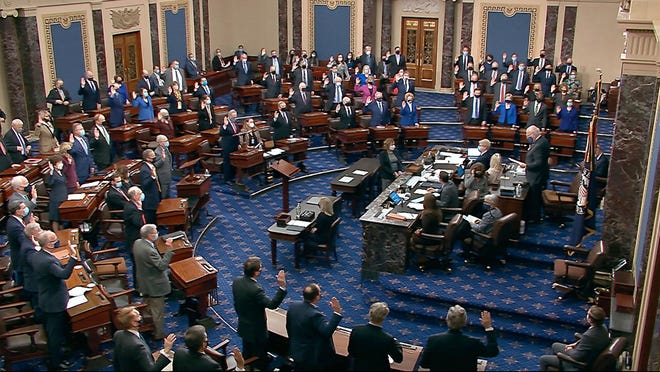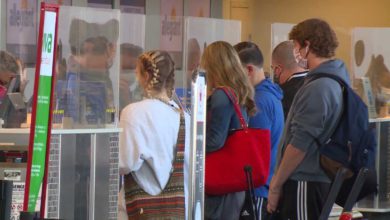
Walking a picket line, sitting at a lunch counter, asking for a book in a library: It could get them arrested, beaten or killed. They did it anyway.
It was 1961, and across the South, college students, faith leaders, shop owners, high school students, civil rights leaders and many others risked their lives to battle white supremacy. They wanted voting rights and the integration of schools, businesses, public transit and libraries.
They lost their jobs, were kicked out of school. Their bodies were bloodied and battered. Others were banished for days, weeks or months to prisons across the South.
For "Seven Days of 1961," reporters across the USA TODAY Network retraced crucial moments that set in motion a new era of civil rights that continues to inform social justice movements today. Sixty years later, as the nation still grapples with systemic racism, as well as access to voting, police violence and how we teach American history, the stories of these civil rights veterans show there is no single moment that topples tyranny: The fight for freedom must be fought each day.
“In 1961 I used to hear people say, ‘The struggle continues,’’’ said Courtland Cox, 80, a veteran of the Student Nonviolent Coordinating Committee, one of the most pivotal organizations of the civil rights movement. “I just thought it was some words. It is, in fact, not just words. There is a reality behind it, which says those in power do not want to ever give up power.’’
Nearly every few weeks in 1961, there was a critical battle for civil rights. Freedom fighters adopted new tactics and launched new campaigns, such as the jail-no-bail strategy that put financial pressure on local governments.
To be sure, activists held significant protests and demonstrations in prior years, including a lunch counter sit-in in Greensboro, North Carolina, in 1960 and the year-long bus boycott in Montgomery, Alabama, that began in 1955. But experts agree 1961 brought about a gelling of the movement as more civil rights groups banded together for the first time in South Carolina, Mississippi and other communities to end segregation and expand voting access. At the same time, an army of young freedom fighters galvanized communities across the South like never before.
“What '61 is in some ways is that moment in time when especially the youth have decided that this is the time to force change,’’ said Spencer Crew, director emeritus of the National Museum of African American History and Culture. “You go from the sit-in movement to the Freedom Rides to voter registration activities, and all the kinds of things that they were doing, that was so important to push change."
To better understand this era of American history and where the nation could be headed, USA TODAY journalists interviewed dozens of civil rights veterans, historians and other witnesses. They reviewed public documents, including arrest records, and traveled with historians and former activists to the sites of some of the most groundbreaking revolts of 1961.
Many veterans still bear mental and physical scars from their time on the front lines. All said they would do it again.
'Seven days of 1961,' a series on Americans that stood up to racism and changed history
Jasper Colt, USA TODAY
USA TODAY’s “Seven Days of 1961” takes readers through seven days in 1961 that put in motion a new era of civil rights that continues to inform social justice movements today. These stories will be published from September through December.
How the first Black woman at the University of Georgia helped integrate higher education in 1961. Read the story

They were sentenced to 30 days on a chain gang. In 1961, the “jail-no-bail” movement cost no money and helped highlight how much Black people were willing to sacrifice for equal rights. Read the story

Civil rights era veterans share the danger and horror of standing up to white supremacy. Read the story

The year 1961 is a masterclass in how vulnerable Black Americans and their allies dared to challenge unjust laws and change U.S. history. Read the newsletter

Join USA TODAY to discuss community leaders’ roles in helping fight systemic racism at our free event. Register now

These nine Tougaloo College students held the first "read-in" in Mississippi when they attempted to desegregate the all-white Jackson Public Library. The Tougaloo Nine are, from left, Joseph Jackson, Geraldine Edwards, James Cleo Bradford, Evelyn Pierce, Albert Lassiter, Ethel Sawyer, Meredith C. Anding Jr., Janice L. Jackson and Alfred Lee Cook.
This animated video explores how Black organizers created formalized protests to challenge white supremacy and forever change the nation. Watch here
Listen to protest songs from the 1800s to today, from “Swing Low, Sweet Chariot” to “Fight the Power.” Listen here
Published
Updated
Source link









